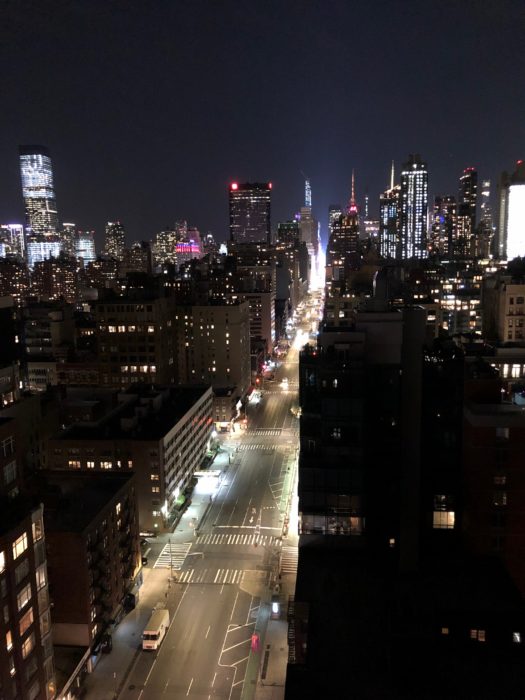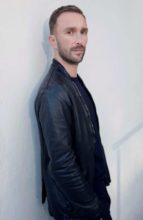Questions are typically more appealing to me than the right answers, but tonight I realized I am yearning for answers to questions I had been avoiding for weeks.
It is 9 pm and I am standing on the roof of my apartment building in Chelsea. We are sandwiched between the skyline of the Financial District to the south, and Midtown with its grand Empire State and Chrysler Buildings to the north. In just a few weeks, all I see around me has gotten downgraded from what many still seem to consider the capital of the world, to ‘an’ and perhaps soon ‘the’ epicenter of the pandemic.
Sunday evening, strict measures were announced to stop the spread of the virus: in the city and all around the state non-essential businesses have been ordered closed and we are only allowed to go out for bare necessities like food, medicine and brief stints of exercise. Who knows for how long? And who knows when there will be even stricter measures?
For the past four weeks I have been preparing for this moment, from moving my team to work from home and readying my apartment to lock myself in, to testing videoconference dinners and drinks with friends and family. Getting it all done in time – just before the strict rules that finally went into action, and before I possibly get sick – feels like a strange New York accomplishment that I should not be so relieved with having succeeded at.
 “I realize I never heard the birds in the trees sixteen floors below me until this morning.”
“I realize I never heard the birds in the trees sixteen floors below me until this morning.”
I look down. Normally hundreds of cars drive on 7th Avenue below me. At night they create a cloud of lights that when you squint your eyes, looks like a twinkling Christmas tree that is crowned by the bright lights of Times Squares in the distance. Tonight, I squint as usual, but a long 42-city block strip of grey asphalt stretches out in front of me, and however much I try, I cannot make it twinkle with just a handful of cars.
A helicopter with a search light keeps circling the Google East-Coast headquarters a block away from me ominously, but when it finally disappears, there is so little traffic that for the first time in years I hear a church bell ringing in the distance. Staring at the empty sidewalks, I realize I never heard the birds in the trees sixteen floors below me until this morning. Those who can leave, have left, or more likely they occupy the dark apartments in the towers across from me only for a few weeks a year anyway. The city is quieting down.
“Why we are so focused on growth, that we cannot manage a massive slowdown?”
With the quiet around and in me, the questions I have been pushing away for weeks, hit me in full force. Probably like many other people, I feel a pressure build in my chest when I question if the healthcare system is ever going to be able to handle what is about to hit us? Why we are so focused on growth, that we cannot manage a massive slowdown? And, how we are going to be able to take care of the most vulnerable around us while we are all cooped up in our apartments? Finally, I wonder how one protests against the many political mistakes that now have become blatant threats to our lives, when the act of congregating is a risk to those same lives? How selfless or selfish will we turn out to be?
All questions that, if we are not alert and pro-active enough, will in a matter of weeks unfold into answers that we never imagined having to hear. Stay safe. Be well. Let’s squint and find that twinkling in the distance.
David van der Leer is Dutch, but has lived in New York for almost fifteen years. He is a forecaster and cultural advisor at his agency DVDL DD, the former Executive Director of the Van Alen Institute, and a Guggenheim Curator.

“My apartment is small but so close to everything that I walk and bike everywhere. My fridge is the size of a hotel room mini bar, and I keep virtually no stock of anything in my pantry as I eat or take 85% of my meals out. I keep barely any plants because I am often traveling, and many of my friends live a 30-minute subway ride away. My doormen send and receive my many packages and dry-cleaning throughout the week. Frankly, I don’t even know how to operate the washing machines in the basement of our building. Usually I like all of that – it is all still so New York after all these years – but calamities of the past, like Superstorm Sandy, have left their mark. And judging from the manic Amazon delivery trucks, and the lines at the supermarkets and pharmacies, I was not the only who had to figure out what it means to suddenly stock up, and imagine a life in which you cannot rely on any of the trivial luxuries I have gotten so used to.”